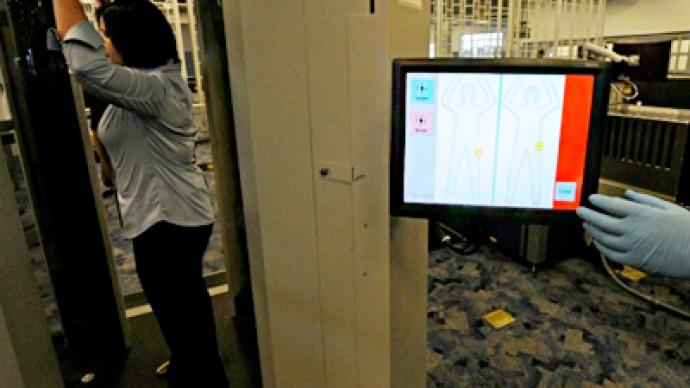Congress strikes down body scanners

As outrage continues over body imagining scanners used by the TSA, a new legislation would cut off funding of the technology that has raised eyebrows across America since they began being installed throughout US airports in 2010.
Homeland Security Subcommittee Chairman Robert Aderholt's (R-AL) proposed legislation, the Fiscal Year 2012 Homeland Security Appropriations Bill, denies the $76 million that US President Barack Obama requested to be used toward the scanners. As per Obama’s request, the funds would provide for nearly 300 additional body scanners being deployed across US airports, as well as the employment of a staff of over 500 needed to operate them. Nearly 500 scanners are already in use across the States, and since their installation, many have opposed them, citing an infringement on personal privacy, though the TSA attests that the technology can detect “a wide range of threats to transportation security in a matters of seconds,” according to an official statement. Homeland Security Department spokesman Adam Fetcher says that the scanners have led to the detection of around 200 prohibited, illegal or dangerous items at checkpoints nationwide since 2010.As privacy issues continue to be raised, however, so do other questions regarding the purchasing and placement of the body scanners.A security and risk management firm run by former Secretary for the Department of Homeland Security Michael Chertoff lists body scanning machine manufacturer Rapsican as one of its clients. Kate Hanni, director of FlyersRights.org, says that Chertoff is “abusing his relationship with the public by pretending to be a public servant and talking about how these body scanners are going to make us safer.”“He stands to benefit because he's getting paid by the manufacturing companies to go all over the television networks saying that these scanners are the solution to security," Hanni adds.The TSA purchased and installed 450 of the units in March 2010, purchasing them with funds from the American Recovery and Reinvestment Act, the economic stimulus package enacted by Congress a year earlier.While Obama pushes for increased security, Aderholt tells the Associated Press that the move was motivated by budgetary factors—not privacy concerns. "We don't want to skimp on security but we want to make sure that where we can make smart cuts, we do," says Aderholt.Hanni insists that the $25 million used for the original installation of the nearly 500 machines should have been used to create jobs rather than skirt tax payers’ money toward setting up the scanners. Another opponent of the scanners, Rep. Jason Chaffetz, remarked in response to the proposed halting of funds that the machines are a nuisance and slow, and that “The bottom line is… they're just not as effective as a good ol' German shepherd."














